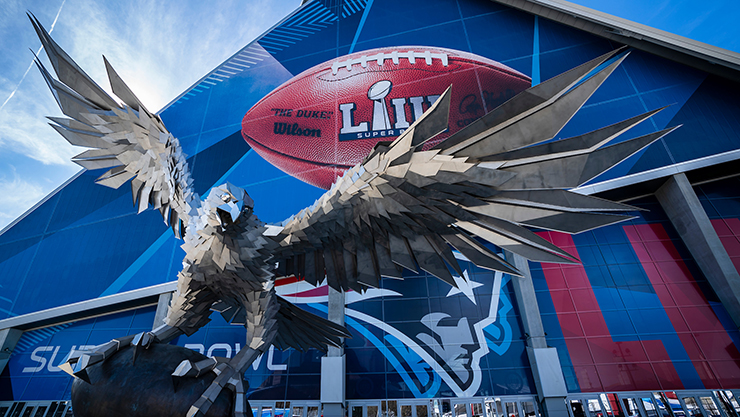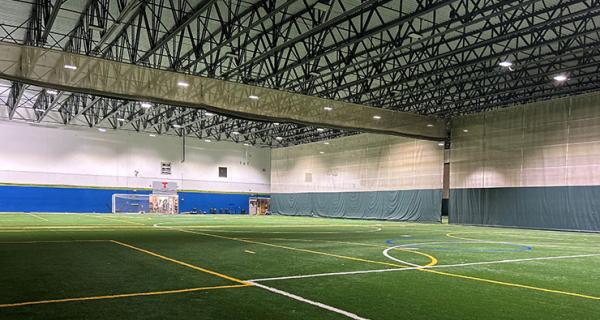Hosting a Super Bowl means not only having nearly 100 million television viewers watch one of the biggest sporting events of the year, but it also means those same viewers will see the host city.
Convention and visitors bureau officials know that exposure can turn into more tourists, corporate events and conventions. For
Houston, which hosted Super Bowl LI in 2017, convention business certainly got a bounce.
“We’ve hit two record years since the Super Bowl in terms of conventions booked,” says John Solis, senior vice president of sales for Visit Houston. “Whether it is a direct correlation, I don’t know,” he continues, “but it’s the enhancements that took place prior to the Super Bowl and the new developments that were completed that make our package more attractive and have had an effect on booking new business.”
Solis points out the Super Bowl buildup resulted in more hotels, increased IT bandwidth and other upgrades to convention facilities. “All of that has been tremendous,” he says.
Included in that upgrade was a new headquarters hotel downtown, a Marriott Marquis.
Minneapolis, which hosted Super Bowl LII in 2018, has also benefited after the big game.
“We hosted a number of customers during the Super Bowl,” says Melvin Tennant, president and CEO of Meet Minneapolis. “We had about 80 customers in town for the week, with a small number of them at the game. Having those customers see behind the scenes and the logistics it takes to put on a Super Bowl allowed us to convince those folks their events can work here. Several groups we hosted have since confirmed their conventions to Minneapolis.”
Those events include “a significant amateur sports federation,” he adds.
Atlanta hosted Super Bowl LIII earlier this year and is starting to feel the long-term benefit as well, says William Pate, president and CEO of the Atlanta CVB.
Many sponsors of the National Football League and other companies held events in Atlanta during Super Bowl week, and “13 of the 15 big NFL events were within walking distance of downtown,” Pate says.
Those sponsors have now seen firsthand Atlanta’s security, logistics and hospitality amenities, which means they may be inclined to host large corporate events in the city, Pate says. “Big corporations were here to throw parties. I would love to convert some of those to hosting their corporate meetings, sales meetings, etc.”
Going Global
Hosting the Super Bowl draws international attention too.
“You have to break down all the opportunities that come from hosting a Super Bowl,” Pate says. “Start with the buzz from having an event like this. It felt like everyone came up to me and said the city looked fantastic. You can imagine our customers saw that too,” he adds. “Momentum moves the market. People want to come to cities that have momentum. When you have a city that has international reach, that furthers your momentum.”
In Atlanta, 6,000 journalists from around the world covered the event and were in the city for several days, writing and televising things about the city, Pate adds.
There were also 150,000 people in town for the event “who had either never been to Atlanta, or who hadn’t been to Atlanta since the
1996 Summer Olympics,” he says. “This gave us the opportunity to refresh their perspective.”
From a sporting event perspective, the Atlanta Sports Council offers “one-stop shopping” to help organize these events, says Dan Corso, president of the Atlanta Sports Council and chairman of the Atlanta Super Bowl LIII Host Committee.
What makes Atlanta rather unusual in that arena is it has hosted or will host back-to-back major events for three years, he says. Atlanta hosted the College Football Playoff National Championship in 2018, the Super Bowl in 2019 and will host the NCAA Final Four in 2020.
“That allows us to create efficiencies in our planning,” Corso says.
Big Game Gains
For Minneapolis, the Super Bowl represented a $370 million economic impact, Tennant says. In 2018, the year Minneapolis hosted the game, room nights were up 3.4%, with ADR up 6.7% and RevPAR up 10.4%.
In 2017, the year it hosted the Super Bowl, Houston saw about 800,000 room nights, a record for the city.
Hotel occupancy in Atlanta hit 96% during Super Bowl weekend, according to the ACVB.
But there can be some negatives, such as having to move booked conventions to other time slots because the Super Bowl requires so much infrastructure.
“From a technical perspective, there were some groups that had to be displaced, but we were able to displace successfully all that we had on the books,” Tennant says.
Likewise, the ACVB had to move some long-standing conventions to accommodate the Super Bowl time slot, Pate says.
The International Production & Processing Expo typically meets the last week in January, and had to be moved to the week after the Super Bowl, Pate says. Cheersport, a competitive cheerleading event typically held Presidents Day weekend, also had to be moved, but both events will return to their normal time slots next year, he says.
What’s Next
Hosting a Super Bowl allows the hospitality and sports industries to come together, and brings the community-at-large together as well.
Each recent Super Bowl host city is ready for big conventions or sporting events in the next few years.
- Minneapolis hosted the NCAA Final Four this year and will host the NCAA Women’s Final Four in 2022.
- Houston is gearing up for PCMA Convening Leaders in 2021.
- Atlanta recently won a bid to host the 2021 Major League Baseball All-Star Game.
Beyond simply hosting events, the community spirit that comes out of the Super Bowl may be the most lasting.
“It brought the community together, and we still have that one-team effect,” Solis says. “When we’ve had industry events, we’ve reached back out to the volunteers who helped with the Super Bowl. The community spirit has been incredible.”









